How tech is forcing firms to be better global citizens
- Published
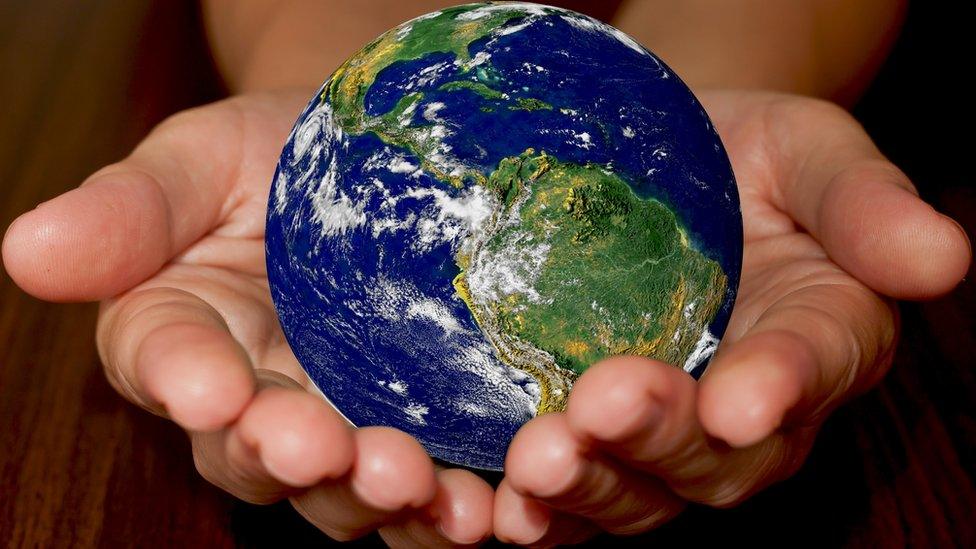
Our world in their hands: Firms have fewer places to hide their misdeeds in the internet age
Cute baby animals covered in oil washing up on beaches; pensioners thrown into poverty; "dieselgate". What do all three have in common?
Before scandal struck, the three corporations concerned - BP, Enron, and Volkswagen respectively - were all judged to be among the world's top companies for their corporate social responsibility (CSR) work.
As a result of corporate scandals like these, the credibility of CSR - firms giving something back voluntarily to local communities - has taken a beating.
Critics dismiss it as a way of glossing over corporate malfeasance - a mere PR tick-boxing exercise.

The Deepwater Horizon oil disaster forced BP to reassess its PR efforts
But now technology is forcing companies to up their game and interact with communities more directly and effectively.
Nowhere to hide
Platforms such as Kritical Mass, external have certainly given a fillip to the idea of crowd-supported philanthropy, attracting individuals and corporate sponsors to its projects, whether that's saving vultures in Kenya or bringing solar power to rural communities in west Africa.
Sponsors can offer funding, volunteers, expertise or marketing. So rather than imposing corporate ideas of "do-gooding" on communities in a patronising manner, firms can simply respond to demand.

Kritical Mass brings worthy projects together with sponsors and volunteers
HelpfulPeeps, external has pushed its volunteering platform into more than 40 countries worldwide, connecting people who want to share their time, knowledge and skills with each other for free.
In the UK, online platform Neighbourly, external connects community projects and charities with companies and people willing to volunteer their resources. For example, Starbucks has pledged 2,500 days of volunteering and has so far backed 70 community projects.
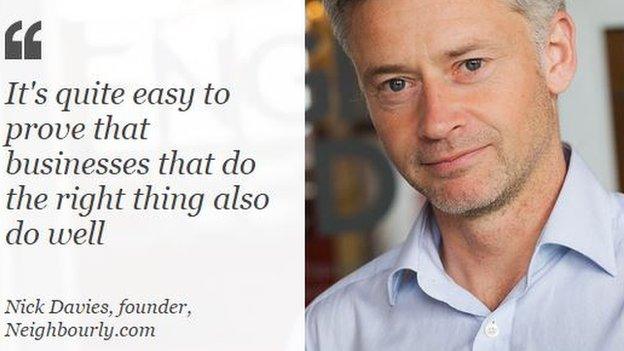
Neighbourly founder Nick Davies says there's value to be had from encouraging staff to volunteer. First, people who volunteer are happier at work; second, there's a commercial case for it: "It's quite easy to prove that businesses that do the right thing also do well."
Mr Davies believes that we have entered an era of internet transparency in which consumers are starting to flex their muscles and expect companies to do the right thing - not just be seen to do the right thing.

Aphelion Energy is raising money through Kritical Mass for its west Africa solar energy project
Judging by the strong public appetite for supporting good causes and campaigning against injustice on sites such as Change.org, external, Avaaz.org, external, JustGiving, external and GoFundMe, external, his assessment appears to be correct.
And LinkedIn says millions of members have signalled on their profiles that they want to serve on a non-profit board or use their skills to volunteer.
Tackling hunger
Aware of this groundswell of good will, Mr Davies founded Neighbourly 18 months ago as way of helping companies engage with consumers locally.
One of the platform's projects involves helping retailer Marks & Spencer redistribute surplus food to those who need it most.
By tackling the issue at a local level, Neighbourly has already connected 100 Marks & Spencer stores and plans to have the retailer's entire network active by the end of 2016, says Mr Davies.
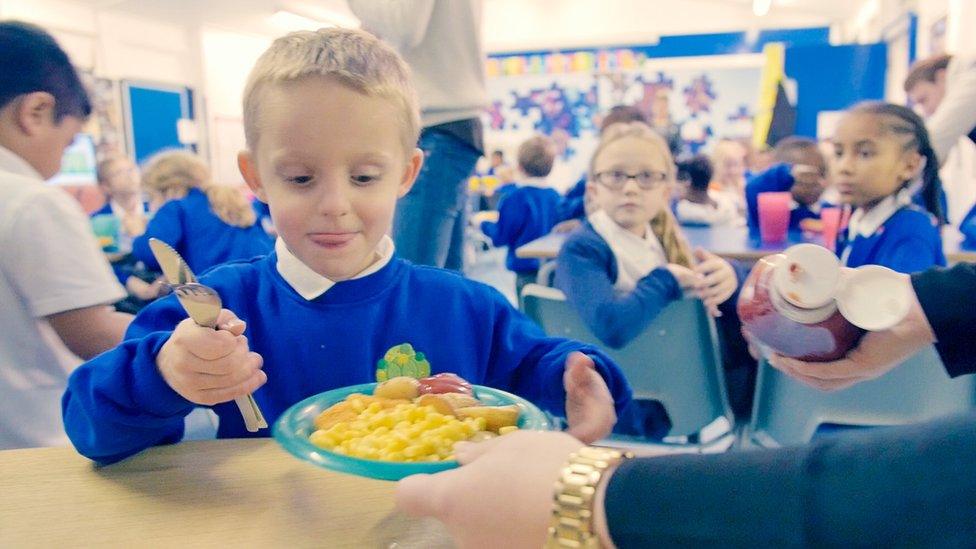
Neighbourly has linked up with Marks & Spencer to redistribute food
"We've already connected 40 tonnes of food or 56,000 meals already," he says. "By the end of the year we could absolutely have redistributed a million meals through the use of technology just with Marks & Spencer."
Technology is also being used to advance women's rights in the developing world with initiatives like Samasource, external.
This not-for-profit organisation gives computer-based data projects to women in areas where traditional gender roles may prevent them from pursuing careers.
Since 2008, Samasource, external has trained and employed more than 30,000 women through data projects with companies such as Getty Images, DropBox, Microsoft and TripAdvisor in countries including Haiti, Ghana, Uganda, Kenya and India.
Sharing expertise
Tech companies in particular are offering expertise and skills to good causes as way of making a tangible difference.
For example, in January, Microsoft announced that through its new organisation, Microsoft Philanthropies, external, it will donate $1bn-worth (£700m) of cloud computing resources to serve non-profits and university researchers over the next three years.
Microsoft president and chief legal officer Brad Smith said: "We're committed to helping non-profit groups and universities use cloud computing to address fundamental human challenges."
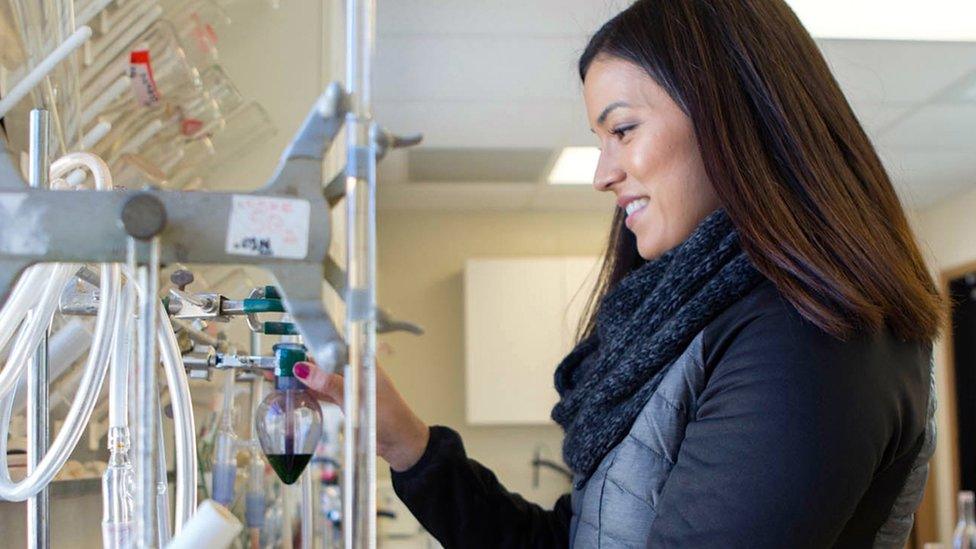
Microsoft is helping Monterey Vintners Association promote sustainable agriculture
And data analytics specialist Applied Predictive Technologies, external (APT) has offered its data-crunching skills to help the Capital Area Food Bank, external charity distribute food more efficiently to hungry people around the Washington DC area.
APT used data to develop a "hunger heat map" to help CAFB target resources and plan for future demand better.
In another project, APT helped The Cara Program, external - a Chicago-based charity providing training and job placements to people affected by homelessness or poverty - evaluate what made its students more employable.
APT boss Anthony Bruce says: "In these 'data dives' APT employees use their analytic skills to distil actionable insights from the data that the charity collects. These insights are empowering charities to identify efficiently which of their strategies are most effective at fulfilling their respective missions."
Sustainability the new CSR?
Stephanie Draper, deputy chief executive at Forum for the Future, believes sustainable business practices have already replaced CSR.
"Companies need to view [sustainability] as a core business issue - something that drives the business context," she says.
The UN's 2015 Sustainable Development Goals initiative has been successful in getting businesses to think about solving social problems, she believes.
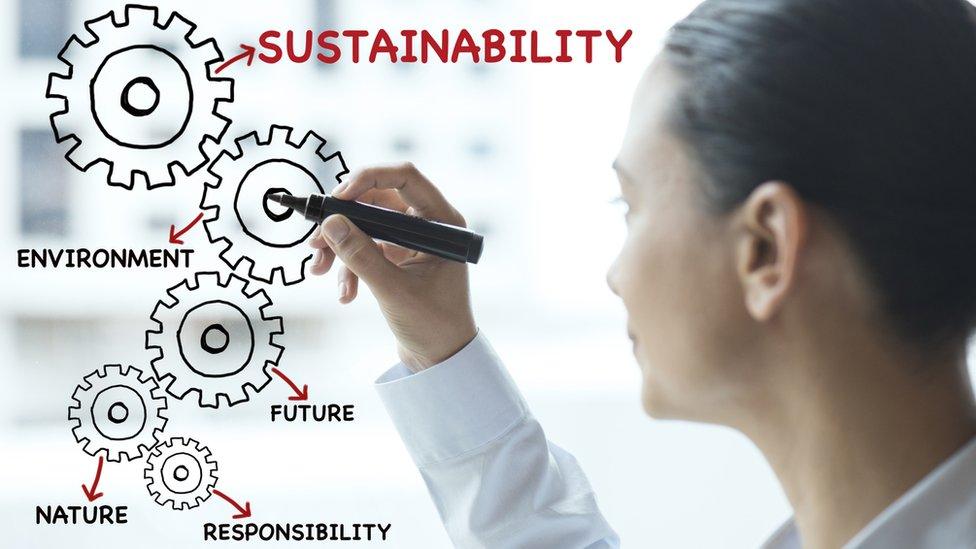
Has sustainability replaced corporate social responsibility as must-have corporate value?
For example, the Toilet Board Coalition, external is a global business-led coalition backed by Unilever that aims to tackle the world's sanitation issues through profitable, market-based initiatives that harness the latest technological innovations.
And Launch, external, an open platform jointly founded by Nasa, Nike, the US Agency for International Development, and the US Department of State aims to provide support for start-ups and "inspire innovation".
In the age of internet transparency, it seems corporates no longer have anywhere to hide - a spot of CSR whitewashing is not going to cut it anymore.
Technology is helping to bridge the gap between the haves and the have-nots.

Follow Technology of Business editor @matthew_wall on Twitter, external.
